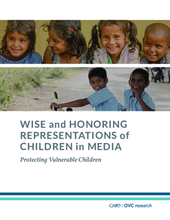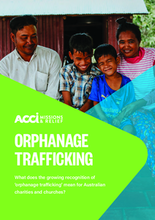Displaying 161 - 170 of 469
This chapter from the book Modern Day Slavery and Orphanage Tourism draws on the author's film The Voluntourist that has aided in raising the groundswell of objection to orphanage tourism.
This paper uses administrative data to describe the characteristics and experiences of a population of youth in the child welfare system considered to be at particularly high risk of victimization: youth who have run away from foster care.
This guide from the Christian Alliance for Orphans (CAFO) offers strategies for protecting children in creating and sharing digital media of children.
In this video, Dr. Kristen Cheney discusses how her work led her to study the growth of the Orphan Industrial Complex and its adverse effects on children, families, communities, and child protection systems.
This article analyzes the impact of volunteer tourism on children’s wellbeing in residential care facilities in Cambodia by employing a child rights-based approach.
This film tells the untold stories of orphanages, a system that's harming the very children we believe it protects, and how you can choose to be part of the solution.
This briefing note has been written to give Australian charities and churches currently engaging with overseas residential care institutions an overview of the issue of orphanage trafficking and an understanding of how to ensure any overseas funding and volunteering supports the best interests of children in line with national and international legal frameworks.
A panel event on orphanage trafficking was held at Thomson Reuters Foundation's Trust Conference 2018 on 14 November 2018. This video captures the discussions of that event, including a statement from one young care leaver from Nepal who told her story of being institutionalized in the country.
This video from the Thomson Reuters Foundation Trust Conference 2018 highlights the "actions" that participants can take to address the issues presented at the conference, particularly actions related to ending orphanage trafficking.
In this video, Kate van Doore, International Child Rights Lawyer of Griffith University Law School, discusses her experience with opening up an orphanage in Nepal, and another in Uganda, and then discovering that the children in these homes had living parents and families and that the orphanages had been made into money-making enterprises.


